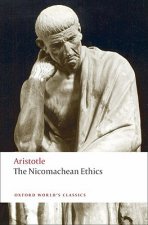
Kézbesítés
Vásárlási tanácsadó





Nem vált be? Semmi gond! Nálunk 30 napon belül visszaküldheti
 Ajándékutalvány
bármilyen értékben
Ajándékutalvány
bármilyen értékben
Ajándékutalvánnyal nem nyúlhat mellé. A megajándékozott az ajándékutalványért bármit választhat kínálatunkból.
Ethics
 Angol
Angol
 29 b
29 b
 toplistás
toplistás
30 nap a termék visszaküldésére
A vásárlók ilyet vásároltak


A profoundly beautiful and uniquely insightful description of the universe, Benedict de Spinoza's "Ethics" is one of the masterpieces of Enlightenment-era philosophy. This "Penguin Classics" edition is edited and translated from the Latin by Edwin Curley, with an introduction by Stuart Hampshire. Published shortly after his death, the "Ethics" is undoubtedly Spinoza's greatest work - an elegant, fully cohesive cosmology derived from first principles, providing a coherent picture of reality, and a guide to the meaning of an ethical life. Following a logical step-by-step format, it defines in turn the nature of God, the mind, the emotions, human bondage to the emotions, and the power of understanding - moving from a consideration of the eternal, to speculate upon humanity's place in the natural order, the nature of freedom and the path to attainable happiness. A powerful work of elegant simplicity, the "Ethics" is a brilliantly insightful consideration of the possibility of redemption through intense thought and philosophical reflection. "The Ethics" is presented in the standard translation of the work by Edwin Curley. This edition also includes an introduction by Stuart Hampshire, outlining Spinoza's philosophy and placing it in context. Baruch Spinoza (1632-77), later known as Benedict de Spinoza, was born in Amsterdam, where his orthodox Jewish family had fled from persecution in Portugal. "Ethics" was published in 1677 after his death, and his influence spread to the nineteenth century: inspiring the Romantic poets, winning the respect of Flaubert and Matthew Arnold, and moving George Eliot, who admired him as the enemy of superstition and the hero of scientific rationalism, to begin a translation of his works. If you enjoyed "Ethics", you might like Rene Descartes' "Meditations and Other Metaphysical Writings", also available in "Penguin Classics". "The noblest and most lovable of the great philosophers ...ethically he is supreme". (Bertrand Russell).
Információ a könyvről
 Angol
Angol




 Hogyan vásároljunk
Hogyan vásároljunk

















































